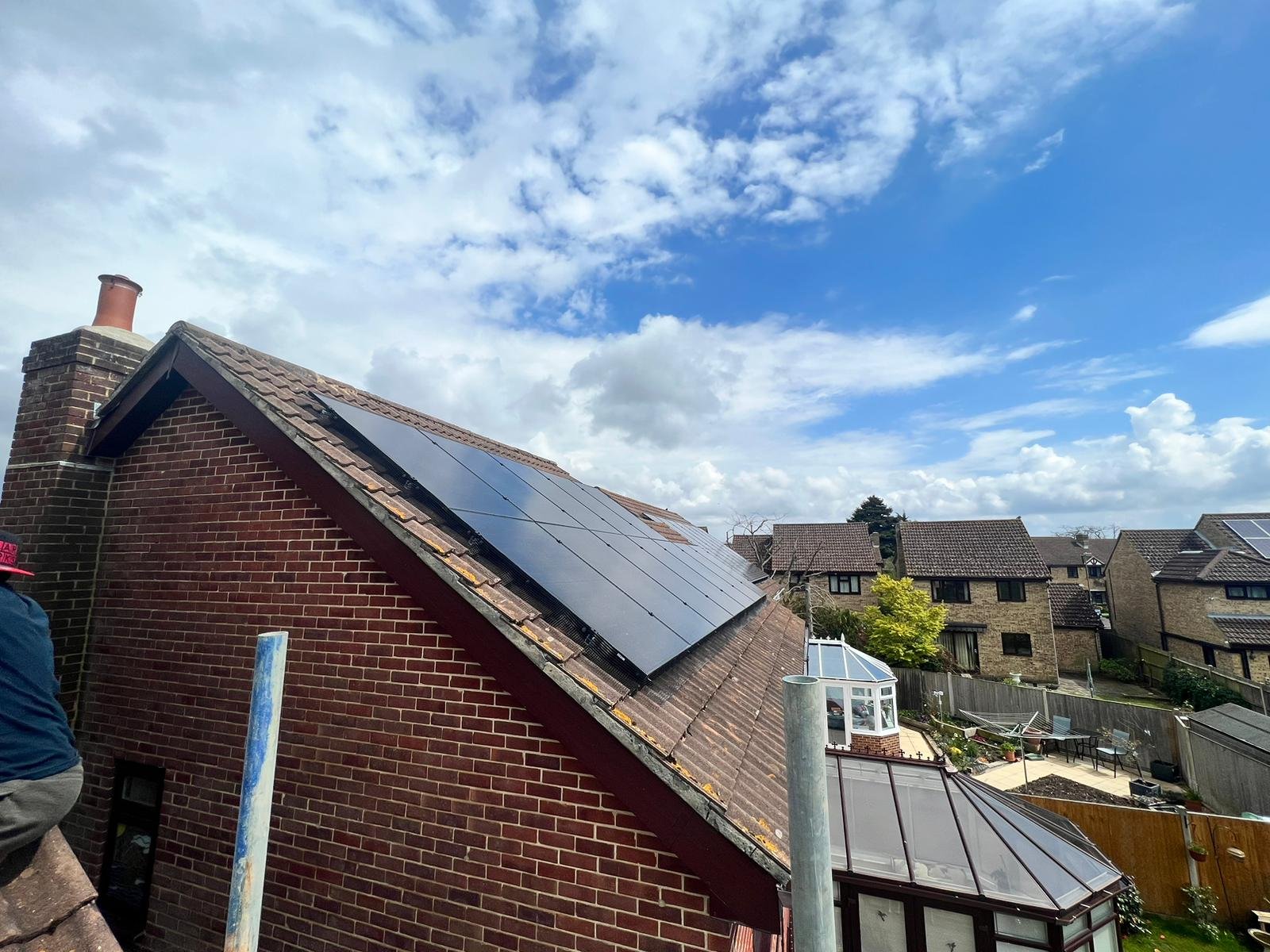How Many Solar Panels Do I Need UK?
Solar System Information
| Solar System | Average Size | Electricity Production (kWh) |
|---|---|---|
| 6-8 Panels | 5 kW | 20,000 kWh |
| 8-10 Panels | 8 kW | 32,000 kWh |
| 10-12 Panels | 10 kW | 40,000 kWh |
| 12-15 Panels | 12 kW | 48,000 kWh |
If you're considering a switch to a greener and more cost-effective energy source for your home, understanding how many you need is crucial. Let's break down the key factors to help you make an informed decision.
What Size Solar System Do I Need?
The amount of solar panels for your home depends on your hours of sunlight, and the amount of energy you'd like to generate. It also depends on the type of solar PV panels you get.
To calculate the number of solar panels required, start by evaluating your annual energy consumption.
Check your electricity bills for accurate data. Residential solar panels typically range from 250W to 400W, and your choice should align with your energy usage.
How Do I Determine The Number of Solar Panels My House Needs?
How do I assess the ideal number of solar panels, incorporating battery storage, for my home? Balancing your budget, energy requirements, available roof space, and the need for solar power and battery storage are crucial considerations. The greater your energy needs, the larger the solar panel system, possibly with additional battery storage, you'll require.
What Would Affect Solar Panels Negatively?
Limited Roof Space: If your property has limited roof space or the available space is shaded by neighbouring structures or trees, it may hinder the installation of an efficient solar panel system. Adequate sunlight exposure is crucial for optimal energy generation.
Financial Constraints: The upfront cost of installing solar panels can be a significant barrier. While solar systems offer long-term savings, the initial investment might be challenging for some homeowners. Financial constraints can prevent individuals from pursuing solar panel installations.
Property Ownership Issues: If you live in a rented property or are part of a homeowners association with restrictive covenants, you may face challenges installing solar panels. Some landlords or property management agreements may not allow structural modifications, including the addition of solar panels.
Unfavorable Roof Characteristics: Certain roof characteristics, such as an irregular shape, low pitch, or poor structural condition, may make it difficult or costly to install solar panels. Additionally, roofs facing in directions other than south may experience reduced energy production.
Understanding Your Energy Consumption
Determine your energy needs based on your home type:
- Detached homes: 4,153 kWh
- Mid-terrace homes: 2,779 kWh
Use this information to decide on the number and size of solar panels suitable for your home.
Considering Roof Space
The size of your roof matters. On average, a solar panel system producing 1.8kWh to 2kWh per day requires at least 13m² of roof space. Larger systems can occupy up to 28m².
Efficiency Factors
Ensure your roof faces south for optimal results. Factors like shading, roof pitch, and available space impact solar panel efficiency.
Understanding Solar Panels:
Before delving into the specifics, it's essential to grasp some basics about solar panels. The average solar panel size typically ranges from 15 to 20 square feet and has a power output of around 300 watts per panel. Solar panels work by converting sunlight into electricity through photovoltaic cells, which generate direct current (DC) electricity that is then converted into alternating current (AC) electricity usable in your home.
Assessing Energy Consumption:
The first step in determining how much solar PV you'll need is to analyze your energy consumption. Take a look at your electricity bills from the past year to understand your average monthly energy usage. Consider factors such as seasonal variations and any upcoming changes in your household that might affect energy consumption, such as adding new appliances or increasing the size of your home.
Calculating Energy Production:
Once you have a clear picture of your energy consumption, you can estimate how much energy your solar panel system needs to produce to offset your electricity bills. A rough estimate is that each kilowatt (kW) of solar panels installed can generate around 1,500 kWh of electricity per year, depending on factors like location, orientation, and shading.
Evaluating Roof Space:
The amount of available roof space plays a crucial role in determining the number of solar panels you can install. Assess the orientation and tilt of your roof to maximize sunlight exposure throughout the day. Consider any obstructions such as chimneys, vents, or nearby trees that may cast shadows on your roof and affect solar panel performance.
Determining the Number of Panels:
With your energy consumption and roof space in mind, you can now calculate the number of solar panels needed for your solar array. Divide your annual energy consumption (in kWh) by the annual production per kW of solar panels to get an approximate size for your solar panel system in kW. Then, divide this figure by the average power output per solar panel (in kW) to find the number of panels required.
Conclusion:
Installing residential solar panels offers a sustainable solution to reduce your energy bills and decrease your carbon footprint. By understanding your energy consumption, evaluating your roof space, and calculating the number of solar panels needed, you can make an informed decision about investing in solar energy for your home. If you're unsure about the specifics or need assistance, don't hesitate to reach out to solar energy professionals who can provide personalized guidance tailored to your needs and circumstances.
Get Expert Quotes
Finding the right installer is crucial. Get in touch with CRG Direct Solar to connect with MCS-certified engineers, ensuring a hassle-free installation and potential savings.
While the initial costs may seem significant, solar panels offer long-term benefits. They not only contribute to a greener environment but also provide savings and potential income by feeding excess energy back into the grid.
For personalized advice and quotes from trusted professionals, click here. It takes 30 seconds to start your journey towards a sustainable and cost-effective energy solution.
FAQs: Your Solar Panel Queries Answered
How many panels are needed to run a house off-grid?
Off-grid needs vary; factors include consumption, house size, and location.
How many panels do I need for 500 kWh per month?
Various arrangements are possible; factors like panel wattage and efficiency play a role.
What size system is best for a 4-bedroom house?
A 4-bedroom house generally requires a 4 to 5kW solar panel system, but specifics vary.
What size system would you recommend for 2,000 kWh per month?
Depending on sunlight hours, around 35 to 40 400W panels might suffice.
What is the standard solar panel size?
A 4kW system requires 13m² to 28m² of roof space, depending on panel size. Costs and power vary based on sizes.
Solar Panel System Sizes for Different House Types
Determining the appropriate size of a solar panel system for your home involves considering factors such as your annual energy consumption and the number of bedrooms in your house. Here's a breakdown of recommended system sizes for various household types:
One-bedroom flat: With an average annual energy usage of 790 kWh, a 1 kWp (kilowatt peak) solar panel system consisting of 3 panels is suggested, providing a total output of 1,200 kWh annually.
1-2 bedroom house: For an energy usage of 1,590 kWh per year, a 2 kW system comprising 5 panels is recommended, yielding an annual output of 2,000 kWh.
3 bedroom house: With an annual energy consumption of 2,645 kWh, a 3.5 kW system consisting of 8 panels is advised, generating a total of 3,200 kWh annually.
4-5 bedroom house: For a larger household requiring 3,700 kWh per year, a 5 kW system with 10 to 12 panels is suggested, providing an annual output of 4,000 kWh.
Does the type of solar panels matter?
Yes, the higher the kW of your panels, the less you will need. You can fit more kW in a smaller area with more powerful panels.
Key Facts about Finding the Best Size System of Solar Needed
Energy Consumption Assessment: The first step in determining the panels you need is to assess your annual energy consumption. Check your electricity bills to understand your household's energy usage patterns.
Panel Wattage and Output: Solar panels come in different wattages, typically ranging from 250W to 400W. Consider higher-output panels for homes with higher energy needs.
System Sizing: The size of the solar panel system is measured in kilowatt-peak (kWp), indicating its maximum power output under optimal conditions. System sizes vary based on energy consumption and available roof space.
Roof Space Requirement: Ensure your roof has sufficient space for the chosen solar panel system. On average, a system producing 1.8kWh to 2kWh per day requires at least 13m² of roof space.
Consideration for Roof Direction: Optimal solar panel efficiency is achieved with a south-facing roof. East-to-West facing roofs may experience a slight decrease in energy efficiency.
Cost Considerations: The cost of solar panel systems varies based on size. Larger systems generally incur higher upfront costs, but they may offer economies of scale.
Average UK Energy Usage: The average energy usage in the UK is around 3,800 kWh annually. This serves as a benchmark when determining the appropriate system size for your home.
System Efficiency Factors: Factors such as shading, roof pitch, and local climate can affect the efficiency of your solar panel system. Consider these variables when calculating your energy needs.
Potential Savings and Income: While initial costs may seem significant, solar panels offer long-term benefits, including potential savings on energy bills and the opportunity to earn money by feeding excess energy back into the grid.
Professional Consultation: To ensure accuracy in system sizing and installation, consult with certified solar panel engineers. They can provide personalized advice, accurate cost estimates, and ensure compliance with local regulations.
Why Choose CRG Direct for Your Solar Installation?
☀️ Peace of Mind with Installation by a Trusted Energy Supplier
☀️ Cost-Effective Solutions: Affordable Packages Available
☀️ Expert Energy Advice and Painless Aftercare with No Call Out Fees
☀️ Product Warranty: 10+ Years Coverage for Solar Panels, Batteries, and Inverters
☀️ 5 Star Reviews On Google
Contact us to arrange a free, no obligation quotation
from our friendly team. We'll get back to you within one working day.
See Our Solar and Battery Installation Services in Action
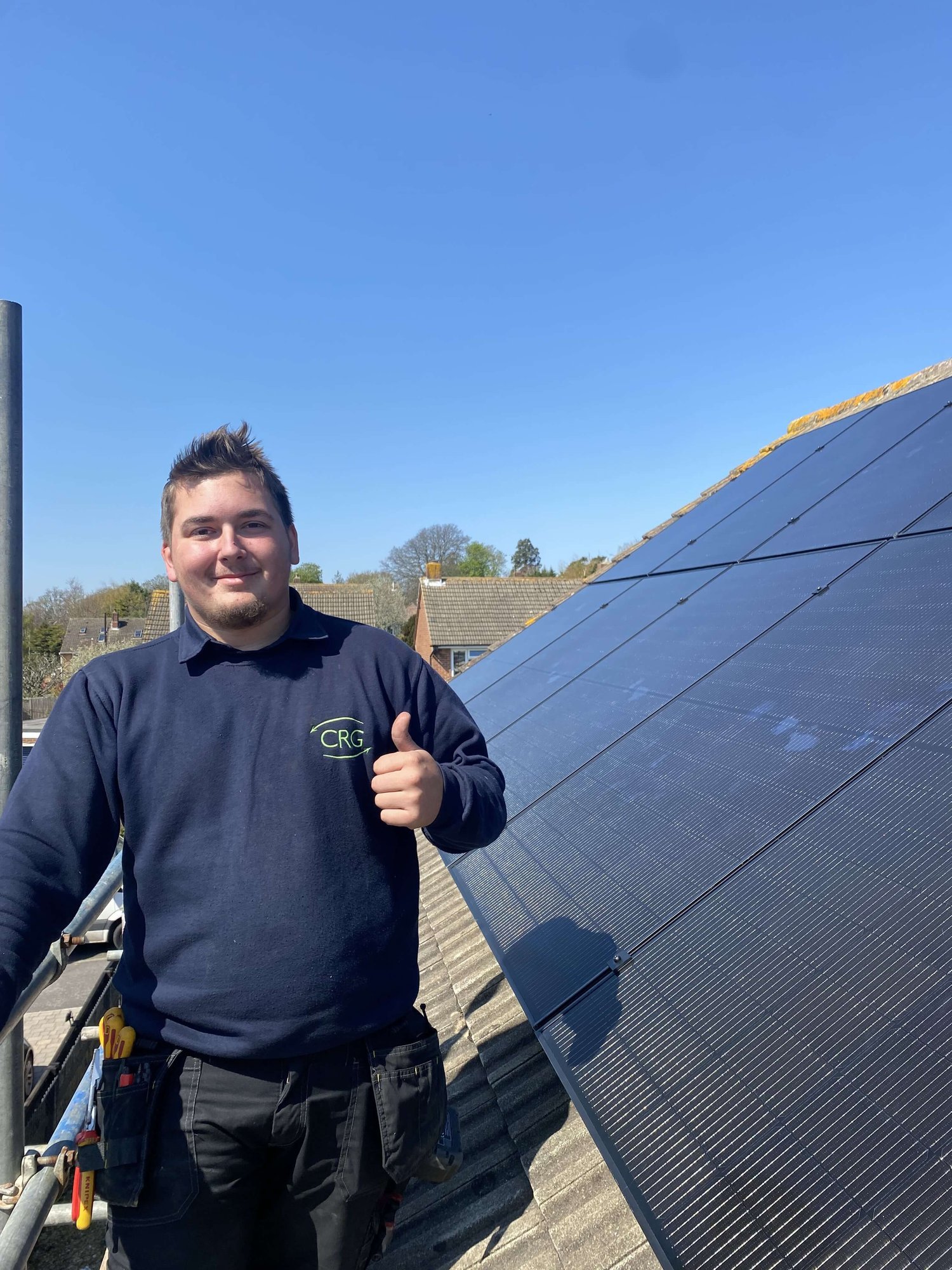

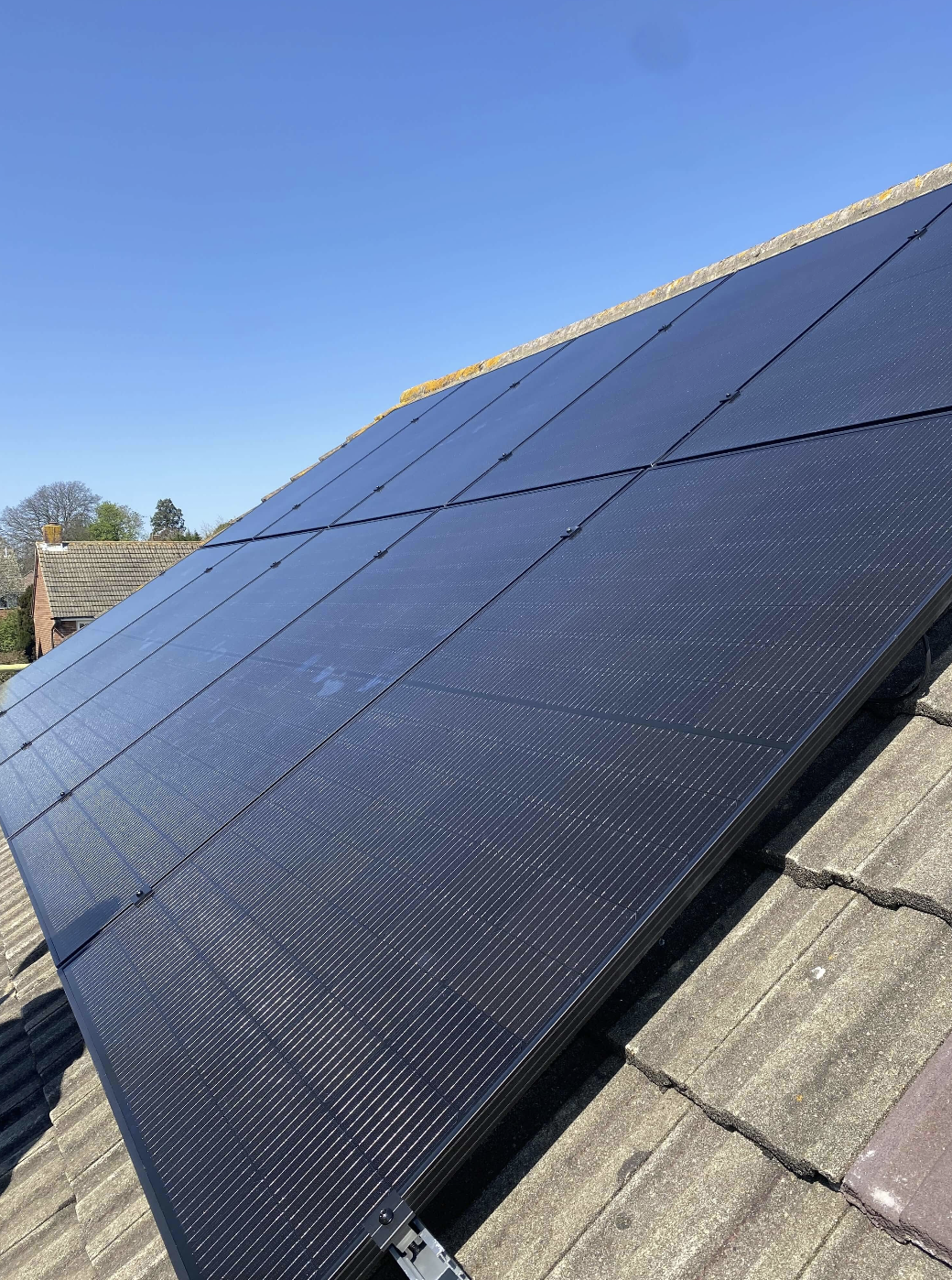
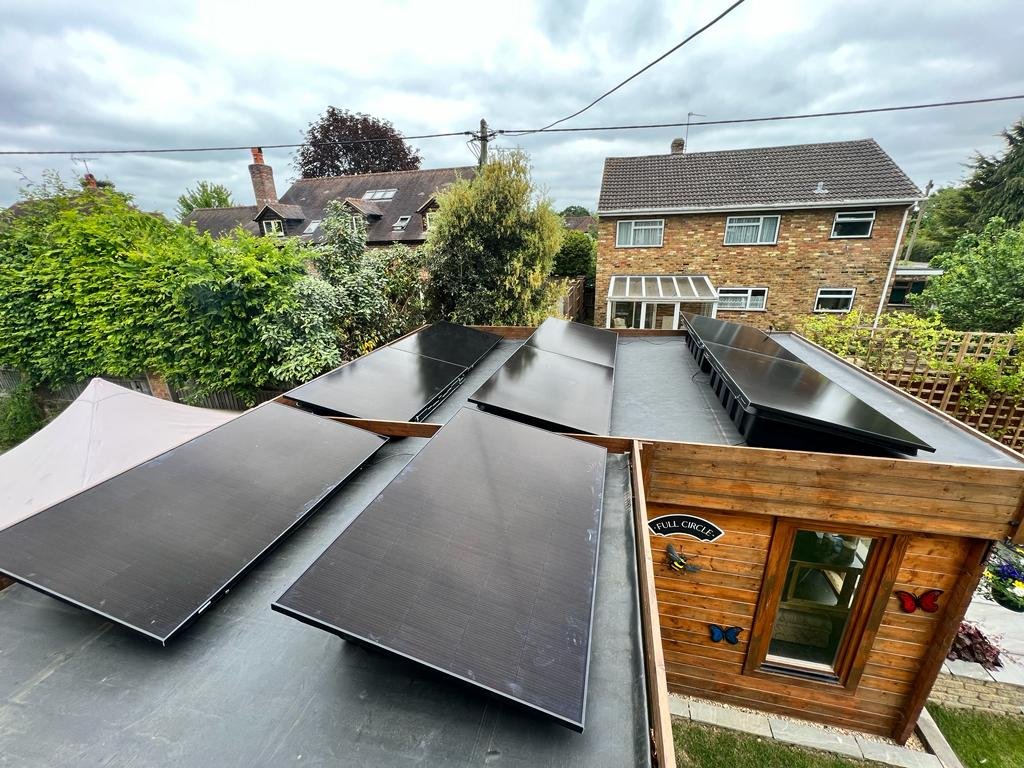
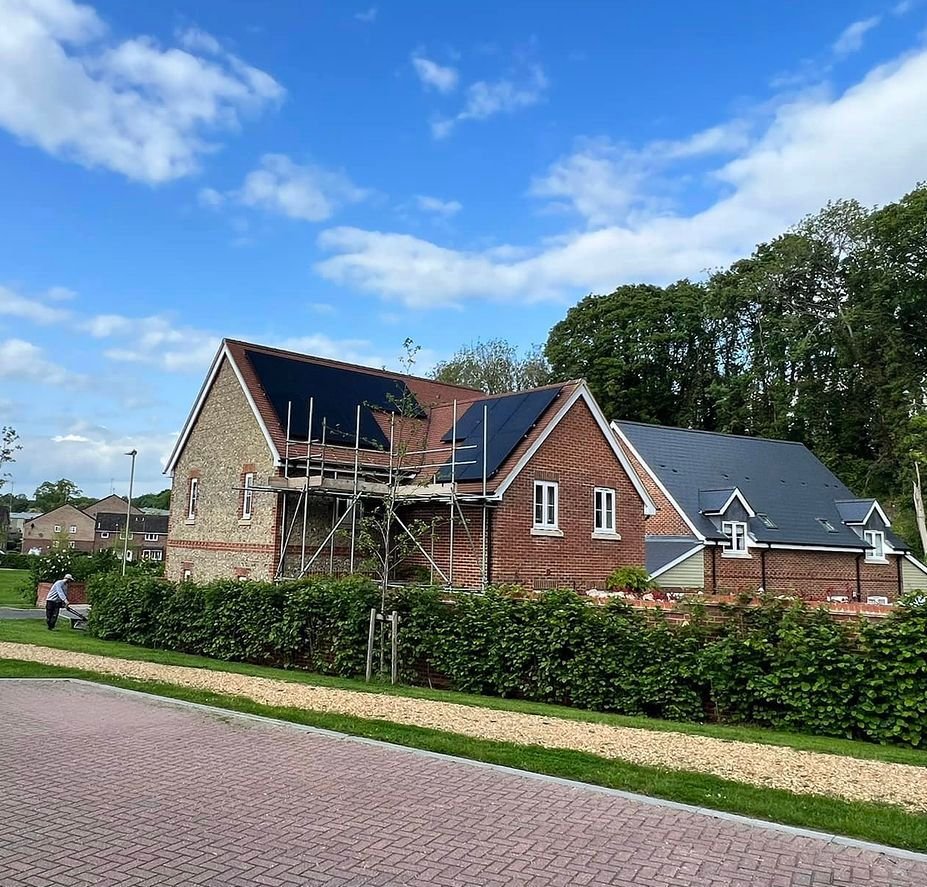
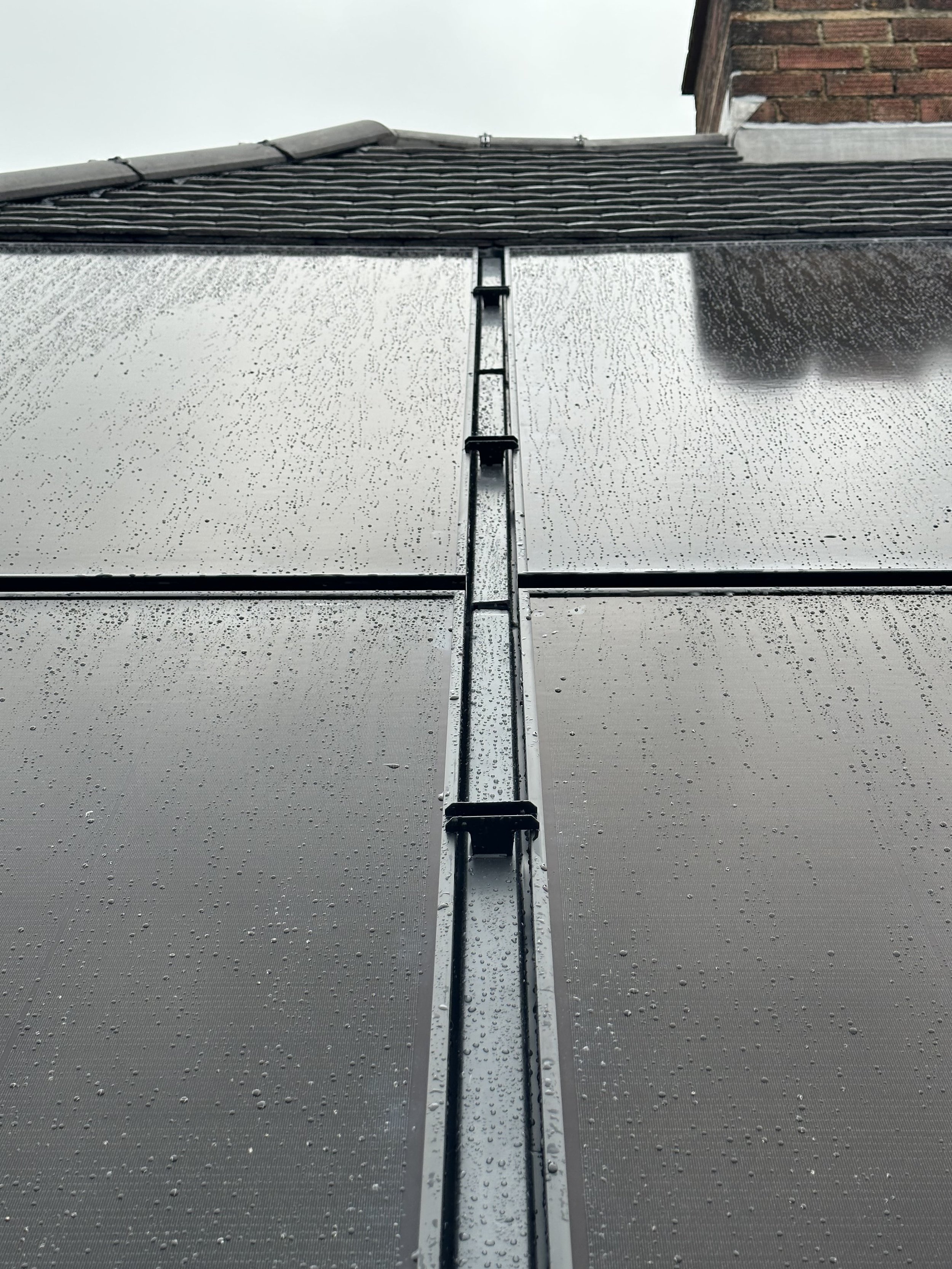
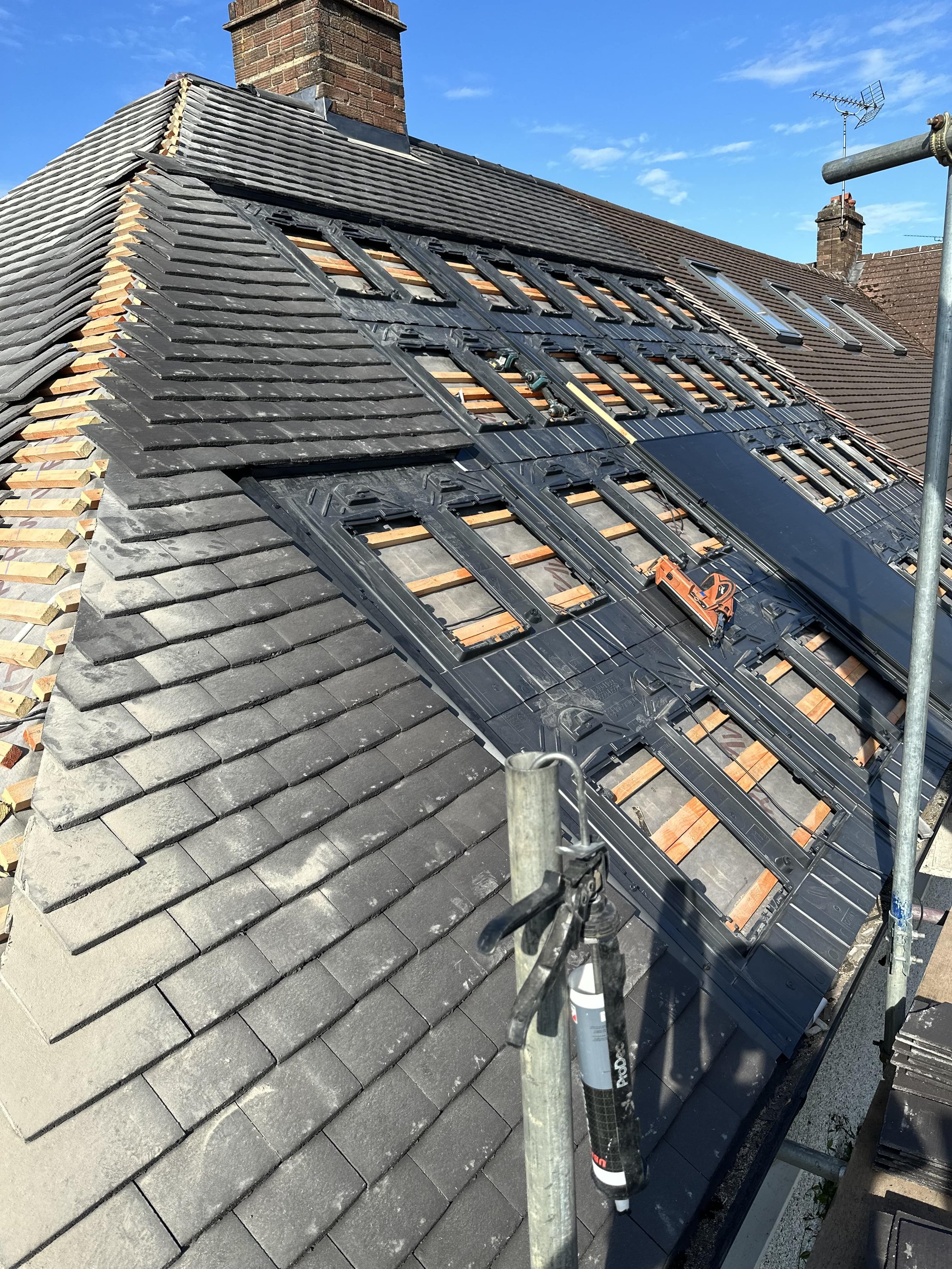
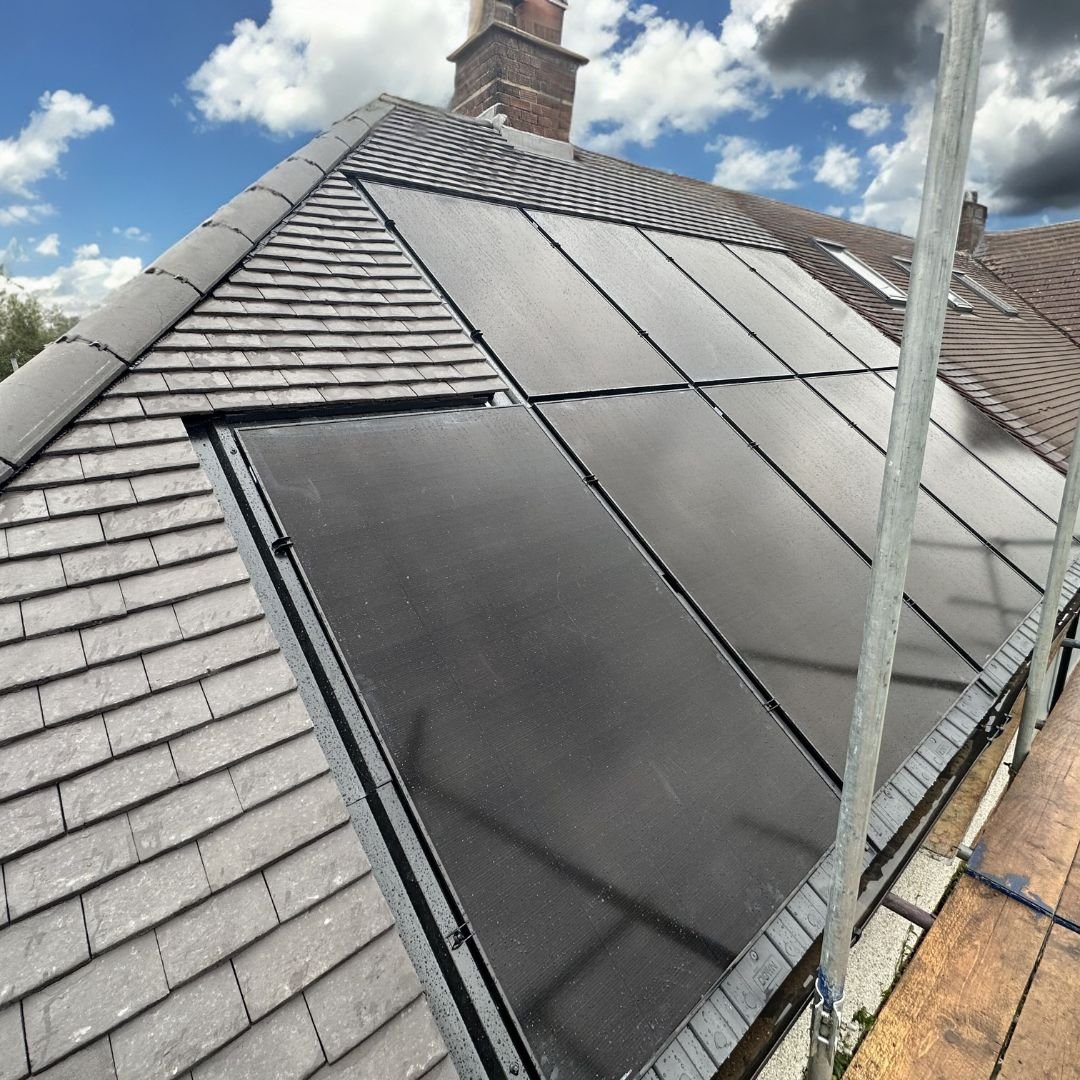
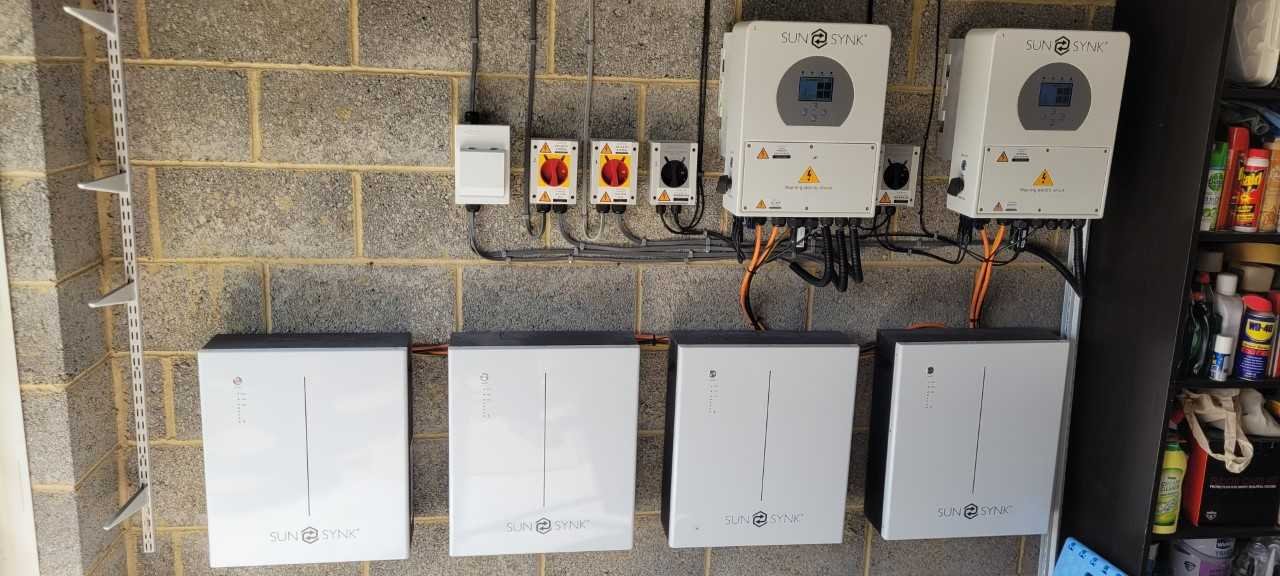
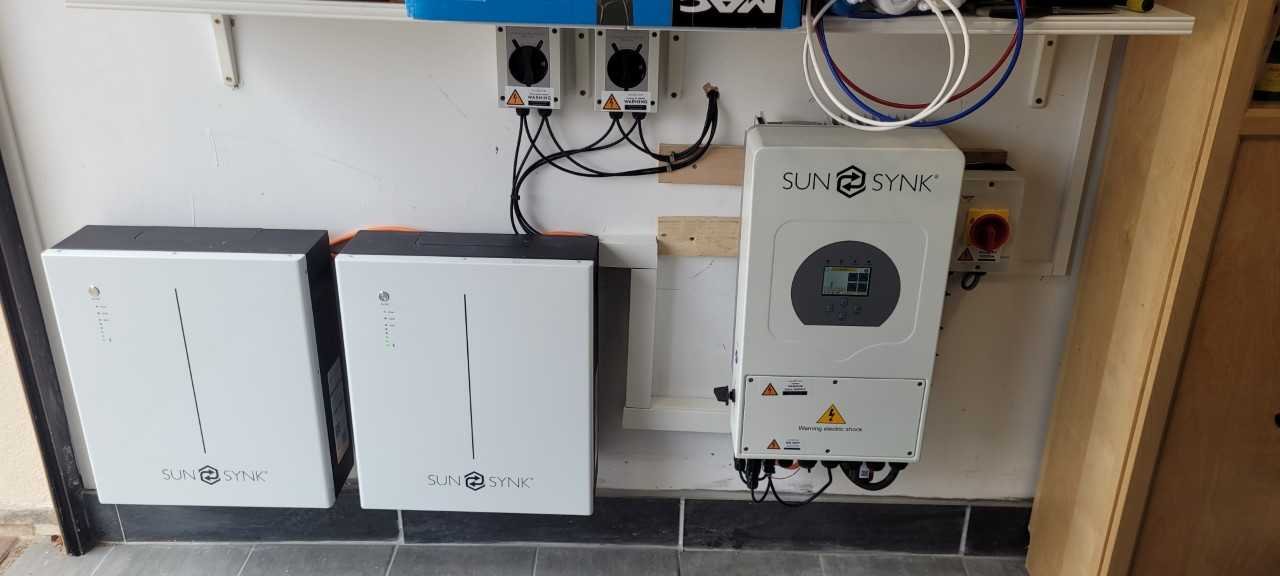
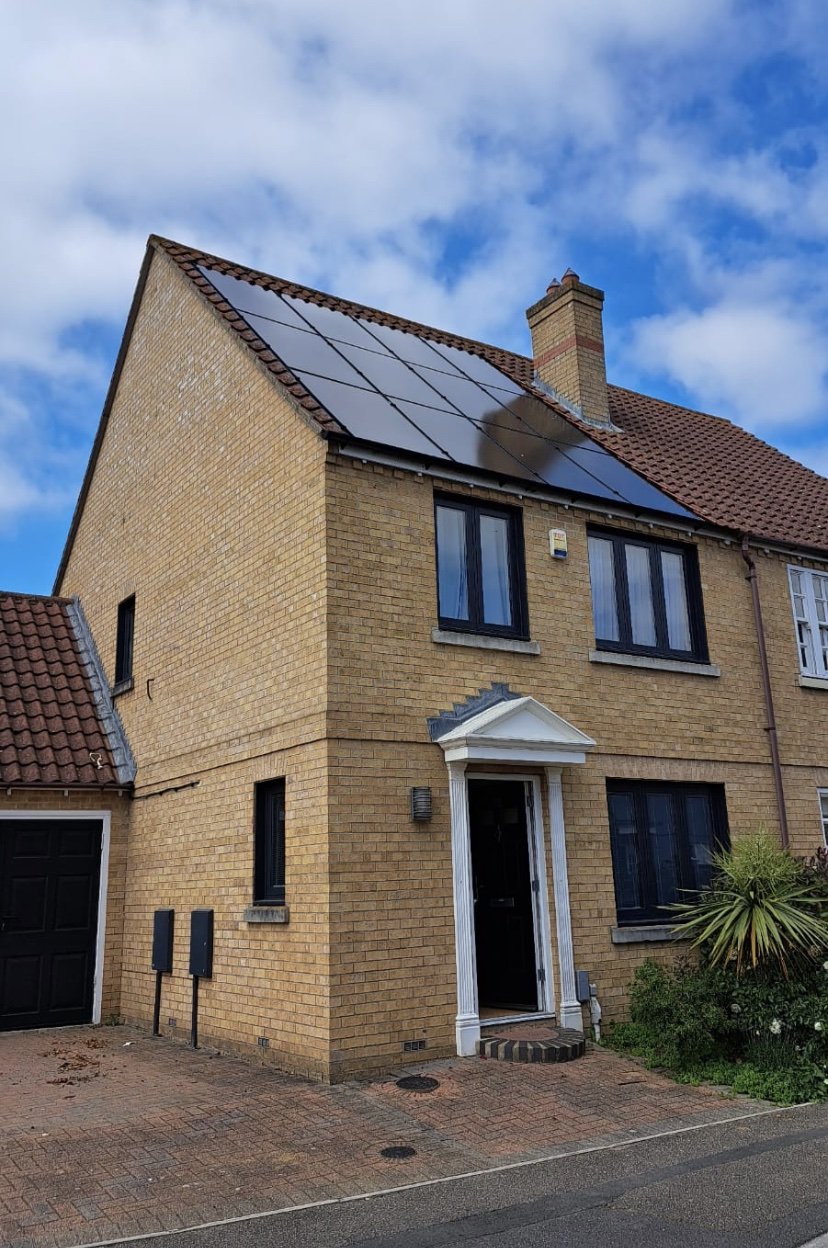
Solar Panel Installation and FAQ’s
Getting Started with Solar Panels
Dive into the world of solar panel installation with insights into flat roof setups, possible energy savings, how it works, panel options, and more.
Solar Panel Installation and Types
Discover how to participate in the SEG scheme and navigate planning permissions in the UK while exploring the essential concept of DNO approval for a seamless solar panel experience.
Find the best system size for your needs ☀️
Reliable Solar & Battery Services for Your Home
With CRG, you can be sure you’re getting the best results at a cost-effective price. Our highly-rated commercial solar installation services include the following:
Learn more about how our experienced solar energy professionals can help you — simply request a free quote online or call us on 0333 253 3531 today.
Read our great reviews.
From quote to after care we found CRG professional… From start to finish we found CRG helpful, professional and the workmanship excellent.






